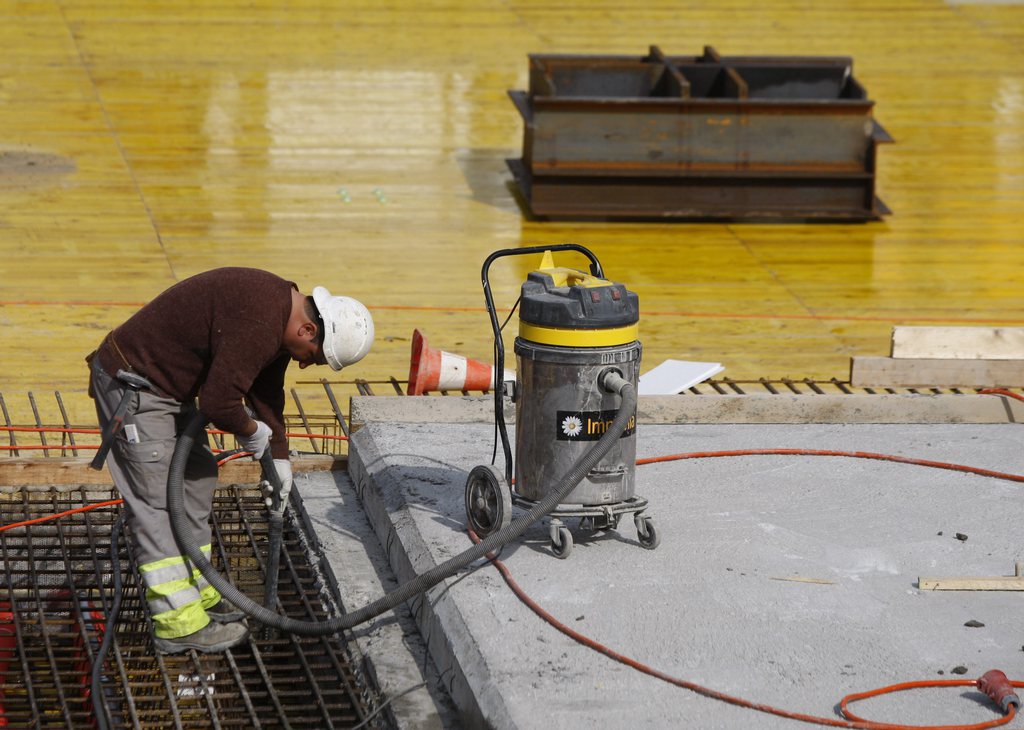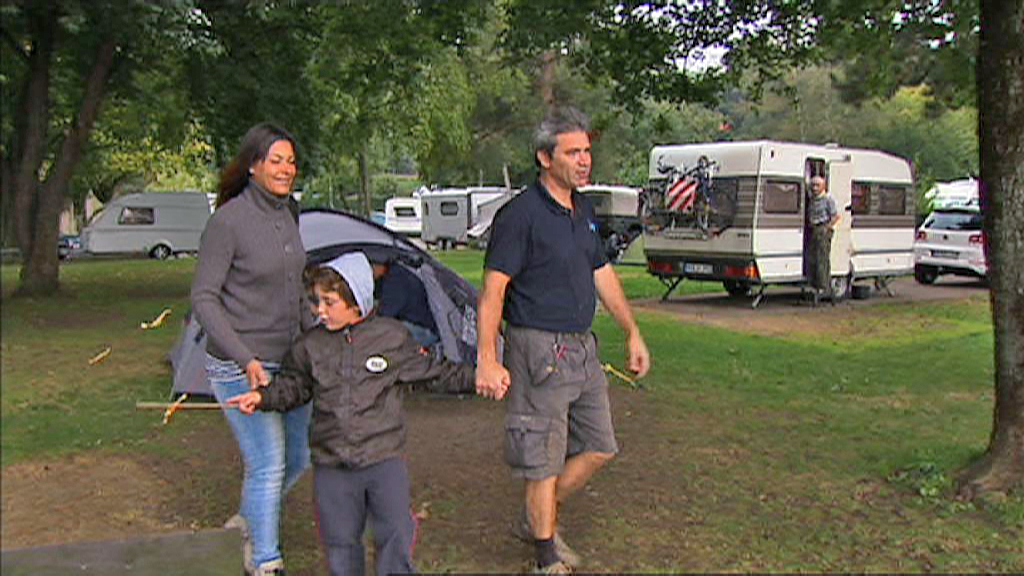Weighing up Swiss-EU open-door policy

The free movement of workers has been allowed between Switzerland and the European Union since 2002 thanks to a bilateral accord that backers say boosted the Swiss economy. However opponents believe it has caused unwelcome problems.
Under the agreement Swiss and EU citizens are free to choose where they live and work in countries belonging to the Union and the European Free Trade Association (Efta).
Switzerland’s State Secretariat for Economic Affairs (Seco) recently pointed out that the accord had significantly boosted the country’s growth, although opponents have their doubts.
The rightwing Swiss People’s Party have launched an initiative “against mass immigration”, while unions and others on the left have questioned the efficiency of the government’s accompanying measures (see sidebar).
Seco’s positive evaluation after ten years is shared by the Swiss employers’ association. Its director, Thomas Daum, says the result contradicts those who fundamentally reject free movement.
For the unions though, the problem lies elsewhere. They point out that the accompanying measures, which are supposed to protect workers from poor pay and working conditions, are insufficient.
George Sheldon, professor of labour market and industrial economy at Basel University, says that statistics show that immigration to Switzerland from northern EU nations – mostly Germany – started to take off in the mid-1990s, before the accord was introduced.
People’s Party vice-president Oskar Freysinger believes this interpretation is wrong though.
“Since free movement really started to kick in about four or five years ago, data shows that immigration has increased significantly,” he told swissinfo.ch. “The gates are now open for people looking for a job or so-called independents.”
Salaries safe
Immigration from the original EU signatories of the agreement has not led to lower salaries in Switzerland if statistics are to be believed, according to Sheldon, confirming Seco’s analysis. “Swiss residents’ salaries were generally spared,” he added.
Individual incomes of highly-qualified workers, foreign or Swiss, increased on average by six per cent between 2002 and 2009 despite immigration.
Sheldon concludes that immigrants and Swiss are not competing for jobs, but rather complement each other. If there is competition, it is among the foreigners themselves, he points out.
Workers with lower qualifications, who have often lived in Switzerland for some time and not necessarily from EU nations, have even seen their income drop.
Freysinger has a different take. “I don’t like to quote the [centre-left] Social Democrats, but even they recognise there is a problem with moonlighting and people pretending to be independents,” he said.
He points out that there are insufficient checks and balances and that more accompanying measures are needed.
Unemployed foreigners
Claiming that higher rates of unemployment among foreigners is a negative consequence of the free movement accord, as its opponents do, demands closer analysis too, according to Sheldon.
“Higher jobless rates for foreigners has nothing to do with the agreement,” he said.
Closer examination of who these unemployed foreigners shows that they are often people with low qualifications who were recruited by the Swiss economy for decades until the mid-1990s. Today, the economy no longer needs as many of these people, reckons Sheldon.
This, he points out, is why care should be taken not to confuse earlier immigration policies with the effects of the free movement accord.
Freysinger disagrees, stating that foreigners who worked earlier in the EU can get Swiss unemployment benefit the moment they set foot in the country. “They would be stupid to head back to their homeland where they would get less,” he added.
Increased productivity
Experience has shown that the arrival of highly-qualified workers helps increase productivity, says Sheldon. This educational “bonus” has benefited the Swiss economy, while, as an extra benefit, with more qualified people on the market, the difference between the highest and lowest salaries has decreased.
Freysinger admits this may well be the case, but only for a small number of foreign workers, such as physicians.
“This is still a problem, as Switzerland has artificially reduced its medical education while importing massive numbers of German doctors,” he said. “They might be cheaper, but their training isn’t comparable to Switzerland’s.”
However, limiting numbers at Swiss medical faculties was first introduced over 30 years ago because of a lack of training facilities at the country’s universities. Free movement had nothing to do with it.
The labour accord with 15 EU as well as three Efta member states took effect in 2002 following Swiss voters’ approval in a nationwide vote.
It is considered a key bilateral accord for non- EU member Switzerland with the 27-nation bloc.
The treaty was extended to ten new EU member states two years later, gradually introducing free access to each other’s labour markets.
In 2009 the accord was extended to an additional two new EU member countries in eastern Europe following another nationwide ballot.
Under the accord, Switzerland and all EU and Efta countries should benefit from unlimited access to each other’s labour markets by 2016.
The Swiss People’s Party initiative calls for the re-introduction of annual immigration quotas, including for asylum seekers.
It leaves it to the government to set the figures.
The campaigners also want to renegotiate the bilateral accord with the EU granting free access to each other’s labour markets.
The negative effects of the free movement accord have been most visible in the construction sector, where wage dumping and unfair competition from non-resident foreigners has been rife.
These problems have raised questions about the entire agreement, since the so-called accompanying measures were supposed to prevent this happening. Unions and companies operating close to the border have complained bitterly about the situation, in particular the lack of on-site inspections.
The Senate reacted on September 25, 2012 by deciding that general contractors would now be responsible for their sub-contractors respecting Swiss working conditions and salaries.
(Translated from German by Scott Capper)

In compliance with the JTI standards
More: SWI swissinfo.ch certified by the Journalism Trust Initiative





You can find an overview of ongoing debates with our journalists here. Please join us!
If you want to start a conversation about a topic raised in this article or want to report factual errors, email us at english@swissinfo.ch.